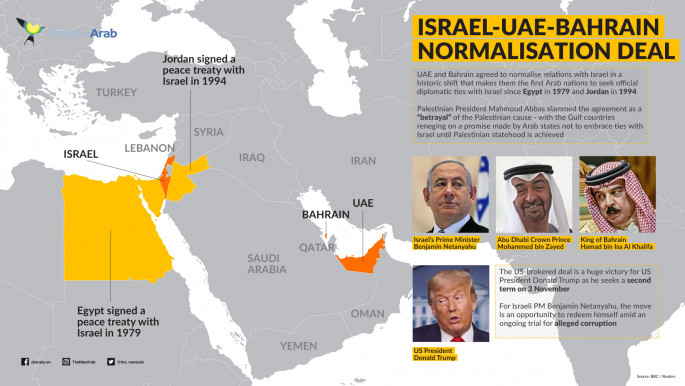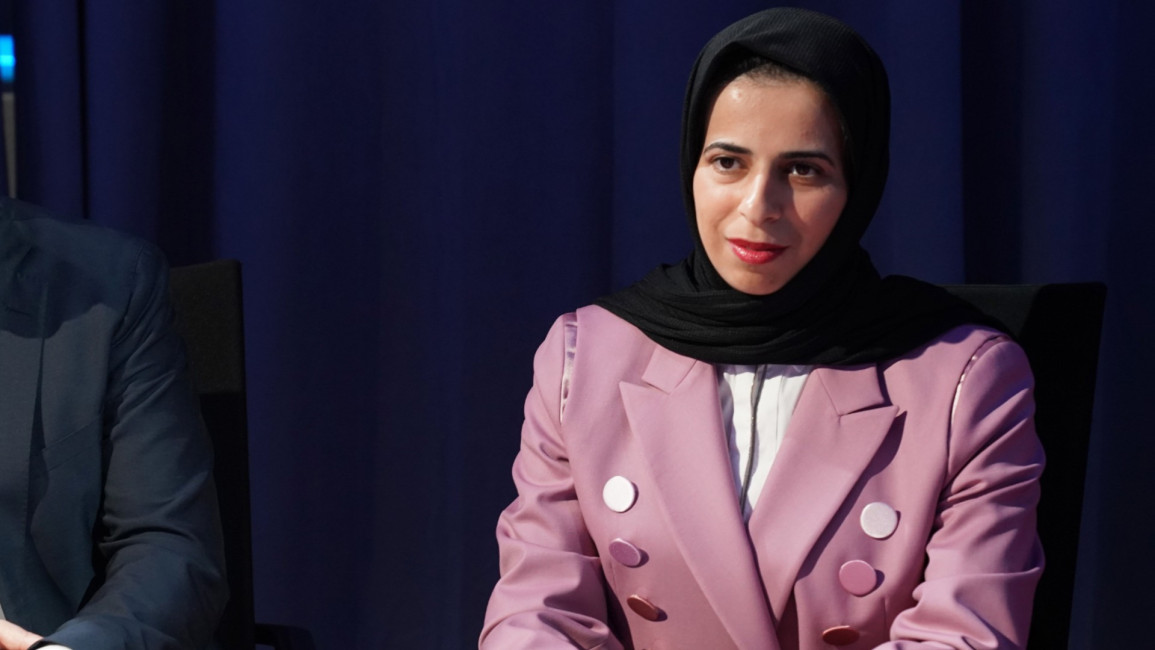Qatar rules out normalisation with Israel until Palestinian state is established: official
In an interview with Bloomberg on Monday, Lolwah Alkhater asserted that there will be no normalisation while Palestinians continue to live under occupation.
"We don't think that normalisation was the core of this conflict and hence it can't be the answer," Alkhater said.
"The core of this conflict is about the drastic conditions that the Palestinians are living under [as] "people without a country, living under occupation."
In August, US President Donald Trump announced the UAE became the third Arab country and first Gulf Arab state to normalise ties with Israel, with Bahrain following suit on Tuesday.
Israeli Prime Minister Benjamin Netanyahu has said his country is in talks with other Arab and Muslim leaders now about normalising relations, following the deals with UAE and, decades ago, Egypt and Jordan.
The UAE's decision to normalise ties with Israel has been welcomed by some Arab countries, but despite cheerleading from the US, others have rejected the idea and many approach it with caution.
The Palestinians have condemned the deal as a stab in the back by a major Arab player while they still lack a state of their own.
Secretary of State Mike Pompeo, who was on a Middle East visit last month, expressed optimism that more Arab nations will sign up.
Regional talks
In 2017, Saudi Arabia, Bahrain, the UAE, and Egypt cut relations with Qatar after accusing it of backing terrorism and siding with their regional rival Iran.
Read also: As Arab countries edge towards Israel, what's next for the Palestinian national movement?
Doha has emphatically denied the charges.
The four countries imposed a blockade by land, air and sea, and ordered the expulsion of Qatari nationals.
The alliance has issued a raft of terms Qatar must accept before it will lift the embargo. Qatar has rejected the terms and characterised them as an attempt to "impose hegemony" on it.
Alkhater suggested in the interview hoped there may soon be progress toward ending the regional crisis.
Mediation efforts, backed by Kuwait, have not yet reached a tipping point, she said.
"In the past couple of months, there have been messages and messengers going back and forth," she said. "It's very early to talk about a real breakthrough [but] the coming few weeks might reveal something new," she added, without elaborating.
Negotiations have moved beyond the 13 demands the boycotting states presented early on as a basis for any resolution, she explained.
The demands included the closure of the Doha-based Al-Jazeera news network as well as The New Arab and its Arabic language service, and shutting a Turkish military base in the emirate.
"We're beyond this point," Alkhater said. "The point we are at is engaging constructively in unconditional negotiations and discussions that do not necessarily need to include all parties at once."
She refused to disclose which of the boycotting countries Qatar is talking to. In the past, officials have said priority would be given to mending ties with Saudi Arabia, with which Qatar shares its only land border.
Follow us on Facebook, Twitter and Instagram to stay connected

![Trump's warm greeting to Netanyahu contrasted with Kamala Harris's critical reception [Getty]](/sites/default/files/styles/image_212x120/public/2024-07/GettyImages-2162908988.jpg?h=69f2b9d0&itok=uRh_9WXh)
![The brutal assault on Khan Younis has killed dozens and displaced thousands more [Getty]](/sites/default/files/styles/image_212x120/public/2024-07/GettyImages-2162526709.jpg?h=d3eda8cf&itok=HCP84AvQ)
![Members of the Algerian delegation threw roses into the Seine [Getty]](/sites/default/files/styles/image_212x120/public/2024-07/GettyImages-2162980872.jpg?h=199d8c1f&itok=PDhNyMBE)